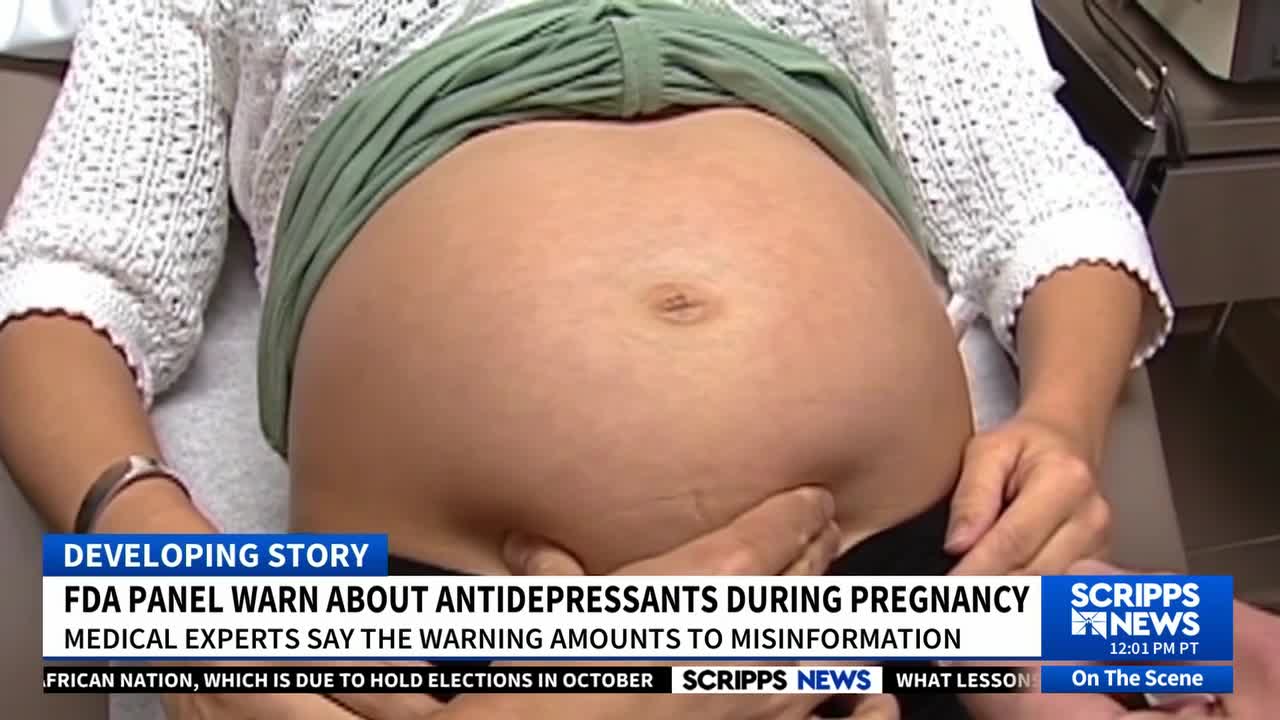The Food and Drug Administration is considering adding warning labels to antidepressants for women who are pregnant, despite medical consensus that these medications are safe.
The agency convened an advisory panel on July 21 that included six professors from various universities, a psychiatrist from a clinic that speciailizes in getting patients off of psychiatric medications, a clinical psychologist, the chief of maternal-fetal medicine at MetroWest Medical Center in Massachusetts and the founder and CEO of Data Based Medicine in North Wales, which operates a website where patients directly report the effects of drugs.
Most of the members of the panel have a longstanding history of being outspoken against the use of psychiatric medications.
"From a national standpoint, the more antidepressants we prescribe, the more depression there is," said FDA Commissioner Dr. Marty Makary without providing evidence for that claim.
RELATED STORY | Mental health of mothers has sharply declined, study says
He said the panel was brought together because it believes serotonin may play "a crucial role in the development of organs of a baby in utero," and that they believe other methods of depression treatment, such as "healthy relationships" and "natural light exposure" should be explored.
"And one of the unique issues in pregnancy is sometimes you don't know that you're pregnant in the first trimester of pregnancy, and it takes time to wean off some of these antidepressants like SSRIs," Makary added.
SSRIs, or selective serotonin reuptake inhibitors, are a class of drugs that are some of the most commonly used antidepressants, such as Zoloft, Lexapro and Prozac.
The advisory panel proposed warning labels over concerns about potential risks of autism, miscarriage and birth defects that they claim are tied to the use of SSRIs during pregnancy.
RELATED STORY | US has highest rate of maternal deaths among all wealthy nations
According to Johns Hopkins, antidepressants are not known to cause birth defects. However, about 30% of babies born to mothers taking antidepressants develop a condition called neonatal adaptation syndrome, which can cause jitteriness, irritability and difficulty breathing.
The advisory panel's proposal has fierce opposition from other medical experts in the field of maternal health, with some arguing that the proposed warning labels are misinformed and disregard the serious risks of untreated depression in mothers.
“[The] FDA panel on SSRIs and pregnancy was alarmingly unbalanced and did not adequately acknowledge the harms of untreated perinatal mood disorders in pregnancy," said Dr. Steven Fleischman, president of the American College of Obstetricians and Gynecologists. "On a panel of 10 experts, only one spoke to the importance of SSRIs in pregnancy as a critical tool, among others, in preventing the potentially devastating effects of anxiety and depression when left untreated during pregnancy."
Mental health conditions are the most frequent cause of pregnancy-related death, according to the Centers for Disease Control and Prevention.
"Unfortunately, the many outlandish and unfounded claims made by the panelists regarding SSRIs will only serve to incite fear and cause patients to come to false conclusions that could prevent them from getting the treatment they need," Fleischman said.
The Massachusetts General Hospital Center for Women's Mental Health had a similar reaction to the panel's suggestion of a warning label.
"Only one of the ten panelists was a clinician — an obstetrician and psychiatrist — who treats women with psychiatric disorders during pregnancy," the center said on its website. "However, more concerning than the voice of a single individual who shares an opinion about a subject that affects so many, is when an organization such as the FDA represents such an unbalanced view to the public as evidence; that is when patients are put at risk."
This story was reported on-air by a journalist and has been converted to this platform with the assistance of AI. Our editorial team verifies all reporting on all platforms for fairness and accuracy.




